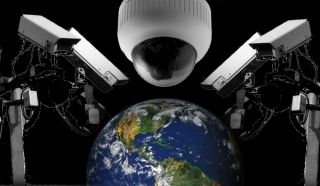As technology increases, both in the government and private sector, it seems that our right to privacy continues to decrease.
Recently, Popular Mechanics reported that the Michigan State Police may have been using forensic analyzers on smart phones during routine traffic stops. The magazine mentions a letter sent from the American Civil Liberties Union to the state police alledging that troopers have been violating the Fourth Amendment by using the Cellebrite Universal Forensic Extraction Device.
The manufacturing company’s website boasts that the UFED system “extracts vital information from 95 [percent] of all cellular phones on the market today, including smartphones and PDS devices.” A list of information that can be extract is listed on the product’s page including: contacts, text messages (even deleted ones), call history, audio, video, pictures and ringtones.
When the ACLU requested logs of the type of information scanned by troopers through the Freedom of Information Act, the department said it would charge a fee of more than $500,000. In a statement released to the magazine, Tiffany Brown from the state law agency said: “The Michigan State Police will provide information…As with any FOIA request under statute, there may be a processing fee to search for, retrieve, review, examine and separate exempt materials, if any.”
The ridiculous fee tends to be a problem when requesting public documents.
In an effort to find out if the ACLU accusation was legit, the magazine interviewed Wayne Logan at Florida State University, an expert in the Fourth Amendment. Logan said, “…phones are just like any other container. Let’s say I’m stopped for speeding and the police find cocaine, and then I’m arrested for cocaine possession; the police could search my car. They could also search any duffel bags that were in my car…”
Logan added that if you are not under arrest, you are not obligated to surrender your phone or consent to a search. The question regarding the ACLU allegation is whether or not drivers volunteered there evidence. Because if you’re innocent, you shouldn’t have anything to hide, right?
Logan said another quandry that may arise is if someone is pulled for a moving violation in a state that bans the use of such devices while driving. Michigan isn’t one of those states.
Another common problem with law enforcement is videoing officers during arrests and traffic stops. With smaller cameras and those built into cell phones, it is easier than in times past. Several would-be photographers have found themselves behind bars. Some of them have been booked for violating state wire-tapping laws. The recent trend has spawned several websites including the blog Photography is Not a Crime and Cop Block.
Not only have photographers been arrested, some have been assaulted and had their equipment confiscated. Although the courts have been mixed, mostly ruling in favor of the officers, the state of Connecticut has introduced a bill that would recognize the right to record the police.
And why not? They have cameras recording us in their cars, in the police stations and even on the highways. They’re recording us, we should be able to record them.
Which brings me to the constant “Big Brother” style surveillance we find ourselves under. In George Orwell’s 1984, Big Brother was always watching, which made it difficult for anyone wanting to rebel the system.
In addition to the cameras, (for public safety, of course) the use of umanned aircraft, similar to those used in our current wars in the Middle East, are being used for domestic spying. A Janurary article in the Washington Post highlights the use of a “bird-size” device in a Texas SWAT mission. Another article from the Post (in 2007) alleges that drones as small as a dragonfly may already be employed by the government. A fellow blogger told me in 2009 that she had seen Predator drones flying over her neighborhood in Minnesota.
Going back to cellphones for a moment, Apple is now the subject of a lawsuit over tracking and data collection. But it isn’t just the iPhone and iPad keeping tabs on where you are using GPS coordinates. Google smartphones are as well. In fact, most cellphones have built-in GPS locaters that can (allgedly) be turned off.
In terms of tracking, Radio Frequency Identification technology is using to keep track of where you’ve been and what you buy. Some schools are even using RFID tags to track students.
Biometrics are also raising the eyebrows of privacy advocates. There are face-scanning cameras in the subway terminals and “naked-body scanners” in the airports. Schools are even using thumb-print identification for kids getting lunch and checking out library books.
There are many more examples I could include here, but will allow you to research for yourself.
All of this technology is being implemented in the name of safety. To those who buy into that propoganda, I’d like to leave you with a quote from Benjamin Franklin: “They who can give up essential liberty to obtain a little temporary safety, deserve neither liberty nor safety.”

 By William R. Toler
By William R. Toler
Pingback: Surveillance Society « OBX Tea Party News